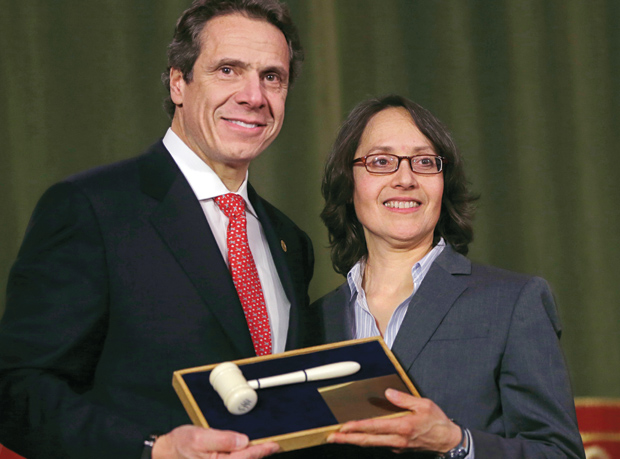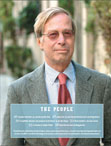From Blackboard to Bench
Printer Friendly VersionRecalling her 1960s childhood on the Lower East Side, Jenny Rivera ’85, one of the newest judges of New York State’s Court of Appeals, says, “My world was my mother and me in our tenement apartment. She walked me to school, she brought me home at lunch. Where she went, I went.”
Accompanying her quiet mother to a protest of housing discrimination against Latinos at a lower Manhattan high-rise transformed Rivera: “I understood that everyone in the picket line was like me, Puerto Rican. Even if I hadn’t learned about inequality at school, I learned about it on the picket line.”
Rivera’s appointment is a historic one: She is the first judge appointed to the state’s highest court to come directly from the faculty of a law school (the City University of New York School of Law) and the second Latina to serve on the court. Her appointment stirred Republican objections because of her limited judicial experience, but Governor Andrew Cuomo staunchly defended her.
“She is going to make a great court a greater court,” Cuomo said at a post-confirmation press conference. “When it comes to problems facing New Yorkers—immigrants, working families, people with civil rights issues, people who are victims of discrimination, people who are victims of predatory lending—she knows the reality that people are dealing with and she knows what the body of the law says.”
Indeed, Rivera comes to the position with impressive legal experience, rooted in social justice. She clerked for now US Supreme Court Justice Sonia Sotomayor when Sotomayor served on the US District Court for the Southern District of New York. She worked for then New York Attorney General Cuomo as special deputy AG for civil rights. She has also been a lawyer for both the Legal Aid Society and the Puerto Rican Legal Defense and Education Fund, and served as an administrative law judge for the NYS Division for Human Rights.
The majority of Rivera’s experience, however, lies in teaching—first, briefly at Suffolk University Law School, then at CUNY for 15 years, where she was founder and director of the Center on Latino and Latina Rights and Equality. The center investigates issues affecting the Latino community in the United States, with the goal of developing progressive strategies for legal reform.
Rivera’s experiences are no doubt what shaped her life commitment to social change. As a judge, she vows to be guided by justice and, she says, to do nothing short of an excellent job in serving the people of New York.
—

